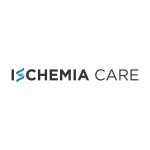OXFORD, Ohio–(BUSINESS WIRE)–Ischemia Care today announced a new program called “CLASSICS,” which stands for Clinical Laboratory and Strategic Support to Identify Stroke and Cause of Stroke to commercialize a portfolio of hospital-based blood tests across industry leading laboratory platforms for ischemic stroke and underlying causes (such as atrial fibrillation) used in the hospital setting. According to the CDC there are over 4 million US emergency room presentations for “cerebrovascular disease or history of stroke or transient ischemic attack,” resulting in 795,000 US strokes each year, and representing the 5th leading cause of death.
Ischemia Care is pioneering the field of molecular testing in stroke and related cardiovascular disease, recently completing enrollment in a 1,700-patient clinical trial at 20 major hospital systems titled, “Biomarkers of Acute Stroke Etiology” (BASE NCT02014896) and commenced a follow on in-market trial called “Biomarkers of Acute Stroke in Clinic” (BASIC NCT03897478). Ischemia Care has accumulated over 5,000 patient blood samples and clinical data representing a 10-test pipeline. The challenge is realizing the full value of this existing data, so Ischemia Care is creating an innovative program.
“CLASSICS will enable collaboration between hospital systems, clinicians, payors, and industry to make blood testing for stroke convenient and cost effective,” according to Jeff June, CEO of Ischemia Care, “To accomplish our goals in patient care we needed to create a network of clinical and industry advocates to collaborate and support this effort. The goal is to prevent strokes by leveraging large amounts of existing clinical and biological data, manage chronic conditions, and improve access across the stroke care continuum.”
Ischemia Care uses next generation sequencing (NGS) and microarray data to generate machine learning derived RNA expression based clinical signatures that in the future may pursue regulatory clearance on multiple laboratory platforms, making testing widely accessible.
The first indication is cryptogenic stroke, which refers to the approximately 25% to 40% of ischemic strokes where despite extensive clinical evaluation, no cause is determined, and may increase risk of a recurrent stroke. Future indications include identifying stroke and transient ischemic attacks.
“Evaluations remain variable and prone to misinterpretation,” according to Dr. Daniel Miller, Henry Ford Health System, “Many patients do not receive appropriate or cost-effective diagnostic testing.”
“CLASSICS will accelerate our mission to address disparity in stroke care across healthcare systems; specifically in women, African American, and rural populations,” says June. “The testing portfolio supported by this effort could represent over 1.2 million tests annually in the US alone, while potentially reducing cost of care significantly.”
Industry support is provided by companies that include Thermo Fisher. “Thermo Fisher is pleased to support Ischemia Care’s effort to address this exciting new market and its potential to advance future clinical care in stroke,” said Chad Carter, vice president and general manager, microarray business, Thermo Fisher Scientific.
Contacts
Media Contact
Jeff June, CEO
Ischemia Care
media@iscdx.com
513-255-0468

